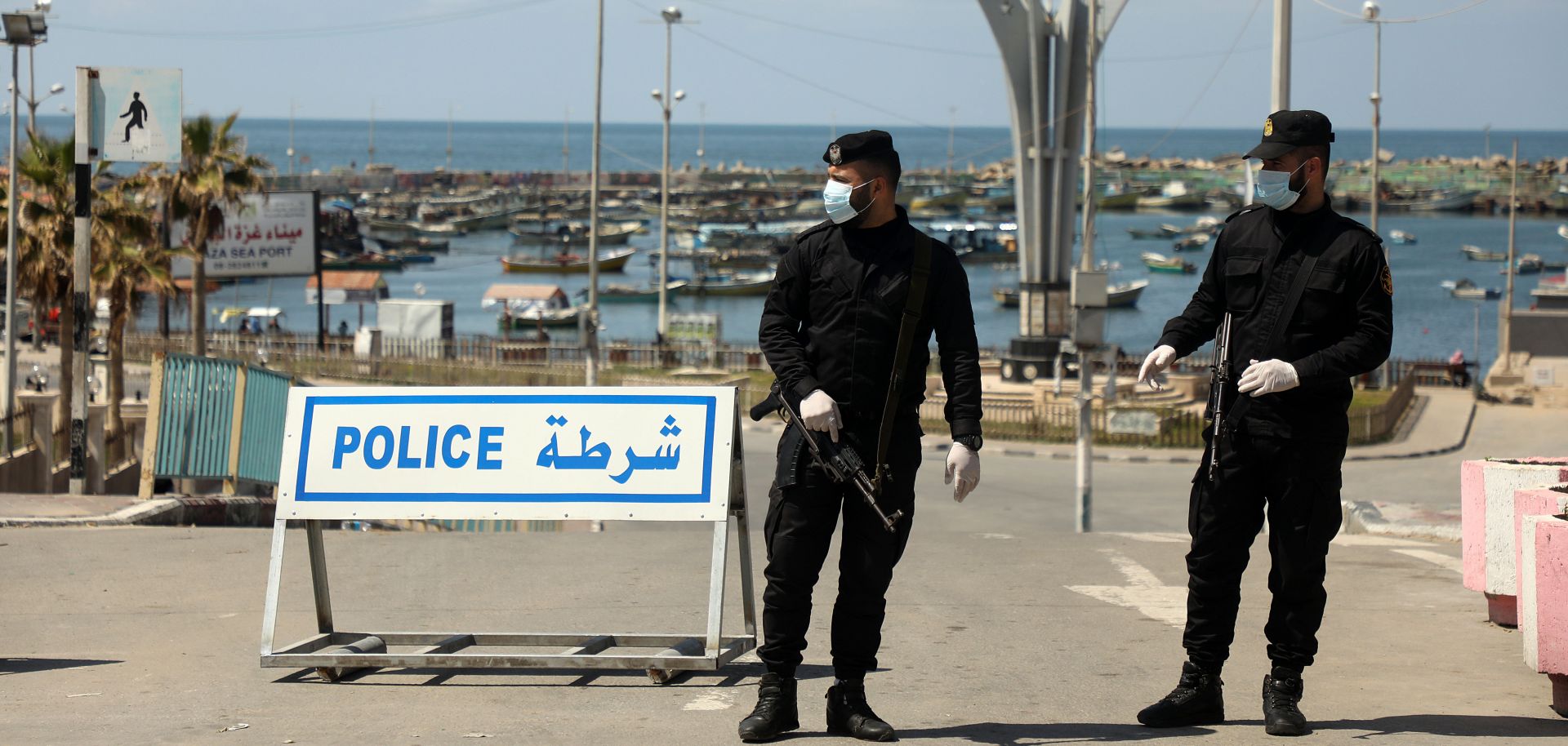ASSESSMENTS
In Gaza, COVID-19 Creates Space for Israeli-Hamas Cooperation
Apr 23, 2020 | 17:09 GMT

Security forces loyal to Hamas wear face masks while they guard the entrance to the seaport in Gaza City on March 25, 2020. The Palestinian city in the Gaza Strip has been on lockdown to stem the spread of COVID-19.
(Majdi Fathi/NurPhoto via Getty Images)
Highlights
- COVID-19 and the global economic recession are helping construct a new type of compartmentalized pragmatism between Hamas and Israel.
- Israel’s new unity government will strive to avoid a costly military operation in Gaza as it struggles to manage the economic blow of the health crisis.
- The need for Israel’s medical support to manage Gaza’s own COVID-19 outbreak, and the potential for reduced economic aid from Qatar, will also deter Hamas from escalating tensions.
- There remains a risk of escalation, however, should anti-Israel sentiment in Gaza prompt protests along the Israeli border or additional attacks from other Islamist militants in the region.
Subscribe Now
SubscribeAlready have an account?
